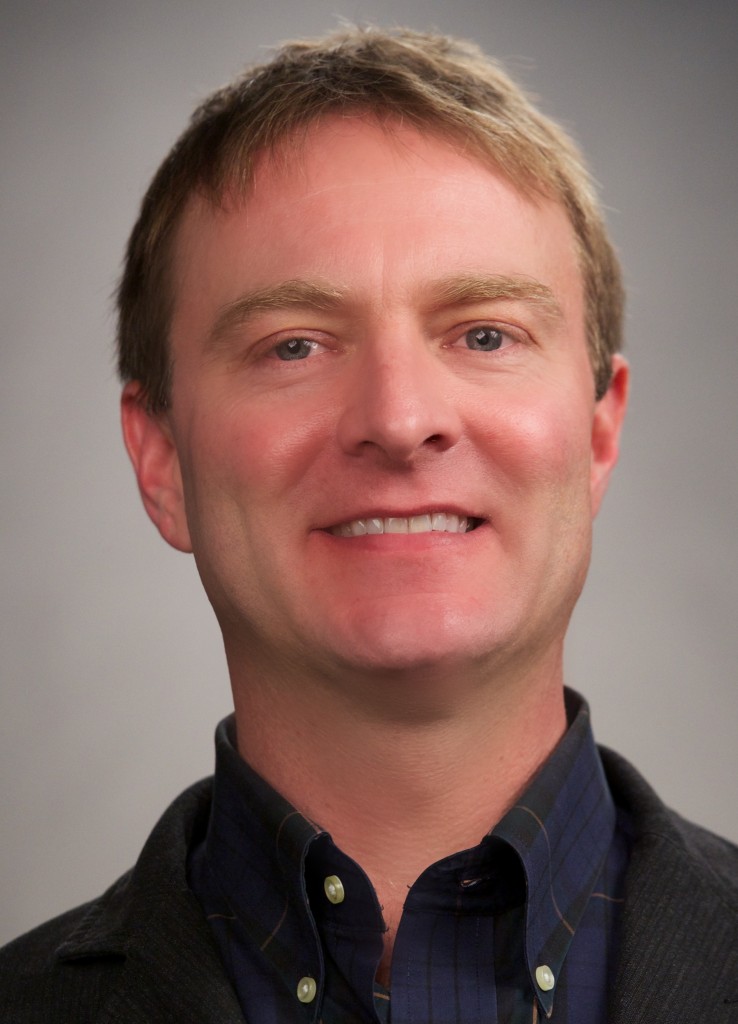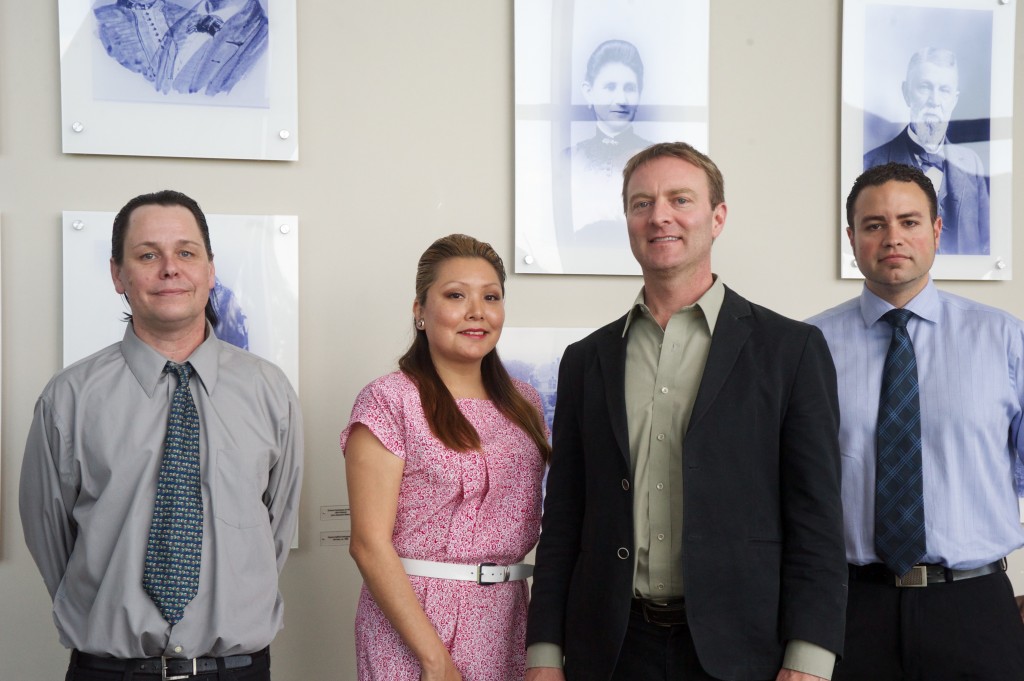 For his continuous and meaningful collaboration with students, large body of original research, scholarly publications, and grants acquisition, Matt Mutchler, associate professor of sociology and director of the Urban Community Research Center (UCRC) at California State University, Dominguez Hills, upon the recommendation of the Faculty Leaves and Honors Committee, has been recognized with the university’s 2013 Excellence in Research, Scholarship and Creative Activity Award.
For his continuous and meaningful collaboration with students, large body of original research, scholarly publications, and grants acquisition, Matt Mutchler, associate professor of sociology and director of the Urban Community Research Center (UCRC) at California State University, Dominguez Hills, upon the recommendation of the Faculty Leaves and Honors Committee, has been recognized with the university’s 2013 Excellence in Research, Scholarship and Creative Activity Award.
“It’s a great honor to be recognized by the campus community for research, scholarship and creative activity. I’m really touched that the committee and the campus leadership are recognizing the type of work that we are doing to try to address HIV and AIDS issues,” Mutchler said, referring to his research focus on what he calls “Gay Boy Talk” (GBT), how men who have sex with men communicate about HIV/AIDS. “And it reinforces the value of faculty working closely with students on campus.”
Through the UCRC laboratory, Mutchler has engaged well over 100 CSU Dominguez Hills students in research since he arrived to the campus in 2005 as an assistant professor.
“The Urban Community Research Center is a place where we have research team meetings and involve students in helping us with our studies. We meet regularly so that students can be involved in all aspects of the research and get hands-on experience,” Mutchler said, adding that students also have these same opportunities through two courses he teaches: Sociology Research Workshop (SOC 302) and Sociology Research Workshop and Theory (SOC 502).
Formally, he has mentored more than 40 students, six of whom have gone on to doctoral programs. He has worked with students from other universities as well through AIDS Project Los Angeles (APLA), where he does community-based research.
In mentoring students he seeks to involve them in all aspects of scholarly research. They not only conduct studies, but they also present with him at national conferences, such as the American Sociology Association Conference, and serve as co-authors on peer-reviewed scholarly articles Mutchler has written. Two articles that he co-authored in 2012 with CSU Dominguez Hills students were published in highly rated journals.
For students whose interests lay outside of his research on GBT or HIV and AIDS, learning under his mentorship is still valuable.
“They can apply the training that they have learned, as far as learning how to do research and think sociologically,” Mutchler pointed out.
Some students are hired as research assistants; others participate in the classroom on research projects they have helped design. For example, for a study focused on students and communication, student researchers have been collecting surveys from other students on campus.
“It has appeal to students, but it’s also connected to the [GBT] work, in terms of looking at different constructs or variables,” Mutchler said.
Widely considered a foremost expert in his field, Mutchler, who holds a bachelor’s, master’s, and Ph.D. in sociology from the University of California, Santa Barbara, has presented data on GBT at the HIV prevention planning meeting at the Los Angeles County HIV Prevention Planning Committee, and at the University of California, Los Angeles AIDS Center for HIV Identification, Prevention, and Treatment Services, and has been an invited speaker at several conferences, including the 2012 International Sociological Association Conference in Buenos Aires, Argentina, where as part of the Distinguished Speaker’s Panel he spoke on “Sleeping and Texting with my Phone: Implications for Mental Health and Sexual Health Promotion among Black and Latino Young Men who have Sex with Men.” He also is a prolific author and serves as a reviewer for scholarly articles, abstracts, book manuscripts, and grant proposals.
He has been awarded more than 15 external research awards over the past 20 years, and his current research has earned a total of $2.5 million, including two RO1 National Institutes of Health (NIH) studies looking at HIV treatment education in African American communities, on which Mutchler serves as the co-investigator with researchers at APLA, Harvard University and Rand Corporation.
“This is about developing a culturally competent HIV treatment education program that will help improve adherence and overall health outcomes among African Americans living with HIV and AIDS,” Mutchler said of the randomized control trial.
In 2012 Mutchler was awarded his most recent grant, a nearly $400,000 R15 grant from the NIH and NIMH (National Institute of Mental Health) to conduct a three-year groundbreaking study exploring how young gay and bi-sexual black men talk about sexual health with their friends. In collaboration with the Department of Sociology at CSU Dominguez Hills, the University of Alabama, and AIDS Alabama, Mutchler, serving as the PI, aims to better understand how sex talk may influence safer sexual and HIV testing behaviors among young black men who have sex with men. The study is in its first phase of data collection through peer ethnography conducted in the field in Birmingham, Alabama, and Los Angeles, two areas of high incidence for the disease.
“Our research on communication with friends among young gay men is the only published research we are aware of on the topic,” he said. “Its important because this is a group that is at high risk for HIV infection.”
He said participation in this level of collaborative research will help propel him to write an RO1 grant proposal for a study for which he will serve as the PI.
“I want to take that work with young gay black men that we are doing now–that’s more formative, and write a large grant to do some more research and program development working with their friends to help support condom use and HIV testing,” Mutchler explained.
Highly engaged, both on- and off-campus, Muthler serves in several roles. He was recently invited to be an Early Career Review for NIH proposals, and is a member of the National Advisory Board for Mpowerment, an HIV prevention program for young gay men.
Mutchler said that it’s important for the campus to build and maintain good community relationships, establishing academic partnerships as well as serving community organizations, in order to be a part of the conversations with people outside of the university who are working on HIV/AIDS prevention and treatment issues.
“It’s very motivating being connected to people out in the field. It also helps with coming up with cutting edge and novel ideas for research that are going to be relevant to the community. I do think that’s the bind that both makes the work useful, but also makes it better,” he said. “And helps me continue to get funding for research that will address HIV and AIDS issues .”
